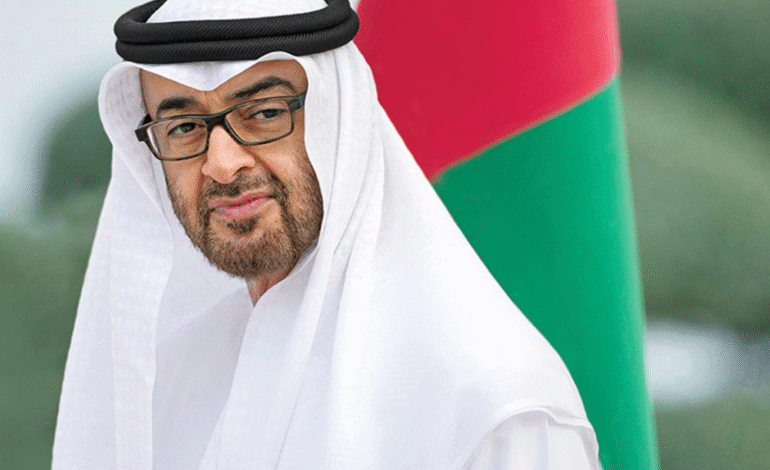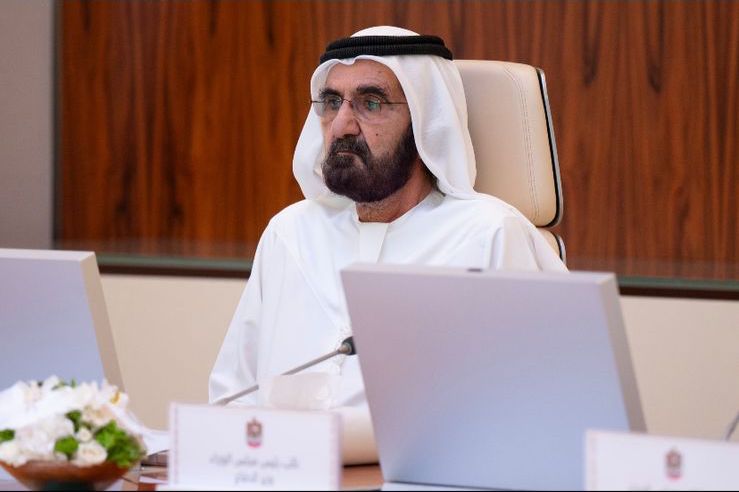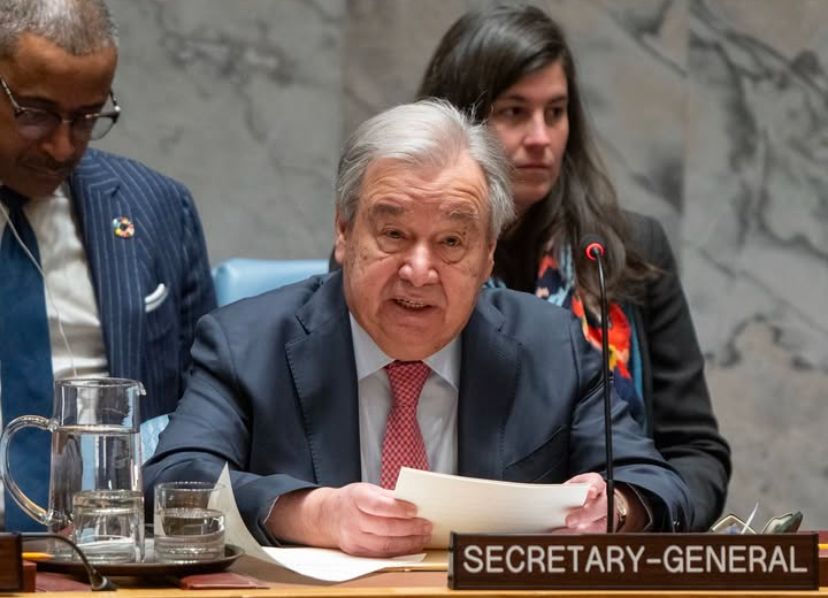UAE President Drives Gulf Diplomacy for Regional Stability

Amid escalating tensions in the Middle East, the United Arab Emirates has accelerated its diplomatic engagement to promote peace, stability, and cooperation across the region. UAE President His Highness Sheikh Mohamed Bin Zayed Al Nahyan held crucial telephone conversations on Sunday with regional leaders including Sheikh Mishal Al Ahmad Al Jaber Al Sabah, Emir of the State of Kuwait; Sheikh Tamim Bin Hamad Al Thani, Emir of the State of Qatar; and Prince Mohammed Bin Salman Bin Abdulaziz Al Saud, Crown Prince and Prime Minister of the Kingdom of Saudi Arabia. The discussions centered on the latest developments following attacks on the Islamic Republic of Iran, and the serious implications of these events for both regional and global security. The UAE’s leadership in these high-level consultations reflects its unwavering commitment to diplomacy, de-escalation, and long-term peace.
UAE President’s Steadfast Commitment to Regional Peace
Sheikh Mohamed Bin Zayed Al Nahyan has emerged as a leading voice for peace and stability in the Middle East. His proactive diplomatic approach demonstrates the UAE’s determination to act as a stabilizing force in times of crisis. The recent phone calls with the leaders of Kuwait, Qatar, and Saudi Arabia reaffirm the UAE’s focus on dialogue as the primary means of resolving disputes. Sheikh Mohamed has consistently advocated for wisdom, restraint, and cooperative action, recognizing that only through such measures can the region avoid deeper conflict.
These latest discussions build on the UAE’s long-standing foreign policy principles, which emphasize non-interference, respect for sovereignty, and the pursuit of peaceful solutions. The UAE President’s outreach to Gulf partners highlights the importance of regional solidarity in addressing challenges that threaten to undermine peace.
Gulf Cooperation: A Pillar of Stability During Crisis
The Gulf Cooperation Council (GCC) has historically provided a platform for its member states to coordinate efforts in preserving regional security. In the wake of heightened tensions following the attacks on Iran, the need for GCC unity has become even more critical. The consultations between Sheikh Mohamed Bin Zayed Al Nahyan and the leaders of Kuwait, Qatar, and Saudi Arabia underline the collective resolve to prevent the crisis from spiraling out of control.
Their dialogue explored the shared responsibility of the Gulf states in fostering stability, containing risks, and supporting diplomatic solutions. The conversations also addressed how closer cooperation can reinforce existing peace initiatives and build resilience against external threats. By engaging in joint consultations, the GCC states are sending a strong message that regional peace requires collective action and continuous dialogue.
Growing Alarm Over Attacks on the Islamic Republic of Iran
The recent attacks on the Islamic Republic of Iran have raised serious alarm across the region. The UAE, together with its Gulf partners, has expressed deep concern over the potential for these developments to trigger wider instability. During their discussions, the leaders acknowledged that unchecked escalation could endanger millions of lives, disrupt vital trade routes, and spark economic crises that extend well beyond the Middle East.
The Gulf leaders emphasized that the current tensions could have grave consequences not only for regional peace but also for the stability of the international system. Their unified position reflects a recognition that dialogue and diplomacy are essential to addressing the root causes of conflict and preventing further violence.
A Unified Call for Restraint, Dialogue, and Peaceful Solutions
Throughout the conversations, a common theme was the urgent need for restraint, wisdom, and diplomatic engagement. Sheikh Mohamed Bin Zayed Al Nahyan and the other Gulf leaders called on all parties to avoid provocative actions that could inflame tensions further. They stressed that peaceful negotiation and compromise represent the only viable path forward.
The leaders urged maximum restraint by all actors involved, highlighting the importance of avoiding steps that could deepen divisions or provoke retaliation. Their appeal for dialogue underscores a shared belief that enduring stability can only be achieved through open communication, mutual respect, and a willingness to resolve differences through peaceful means.
UAE’s Leadership Role in Regional Diplomacy
The UAE’s proactive diplomatic outreach forms part of its broader commitment to fostering peace, cooperation, and sustainable development across the Middle East. Under Sheikh Mohamed Bin Zayed’s leadership, the UAE continues to position itself as a trusted partner and mediator in addressing regional challenges.
These consultations are part of a sustained effort to promote inclusive dialogue, rebuild trust among nations, and create conditions conducive to long-term stability. The UAE’s foreign policy vision emphasizes partnerships, dialogue-driven solutions, and collective security as the foundation for a prosperous future.
Sheikh Mohamed’s leadership has also enhanced the UAE’s standing as a responsible actor on the global stage, working closely with regional and international partners to promote peaceful coexistence and shared prosperity.
Global Security and Economic Implicationsof Middle East Tensions
The Gulf region plays a vital role in global energy markets, international trade, and geopolitical balance. Any escalation of conflict in the Middle East could have far-reaching consequences for the global economy and international security.
During their consultations, Sheikh Mohamed Bin Zayed and the Gulf leaders highlighted the risk that continued instability poses to energy supplies, financial markets, and the security of global trade routes. They agreed that peace in the Middle East is not solely a regional concern but a global imperative.
Their discussions stressed the importance of international cooperation in supporting de-escalation efforts. The Gulf leaders urged global powers and institutions to encourage dialogue, facilitate negotiations, and back initiatives aimed at restoring calm.
Shared Vision for a Peaceful and Stable Middle East
The phone calls between Sheikh Mohamed Bin Zayed Al Nahyan and his Gulf counterparts reflect a unified vision for the region’s future—one that is anchored in peace, cooperation, and mutual respect. The leaders agreed that the only path toward lasting security and prosperity lies in dialogue, diplomacy, and joint action.
Their conversations demonstrated a consensus on the need to reject violence and prioritize peaceful conflict resolution. The UAE, Kuwait, Qatar, and Saudi Arabia remain steadfast in their commitment to creating a Middle East defined by stability, inclusiveness, and opportunity.
Historical Context: UAE’s Role in Promoting Dialogue
The UAE has a long track record of promoting peace and facilitating dialogue in the Middle East and beyond. From its participation in international coalitions for stability to its role in hosting global peace forums, the UAE has consistently advocated for solutions that bridge divides rather than deepen them.
Sheikh Mohamed Bin Zayed’s leadership reflects this tradition, reinforcing the UAE’s position as a nation that values diplomacy over discord. The UAE’s efforts in this latest crisis are part of its enduring mission to contribute to a more peaceful, secure, and prosperous region.
Advancing Diplomatic Solutions: The Road Ahead
The ongoing consultations led by Sheikh Mohamed Bin Zayed Al Nahyan signal the UAE’s determination to pursue all avenues for peace. By working closely with its Gulf neighbors, the UAE is helping to create momentum for dialogue and constructive engagement.
The path ahead requires sustained diplomatic effort, mutual trust, and the active involvement of both regional and international partners. The UAE will continue to advocate for policies that reduce tensions, foster cooperation, and build a framework for lasting peace in the Middle East.








1 Comment
[…] initiative aligns with the UAE’s broader focus on human development and well-being. The UAE Federal Government has already […]
Comments are closed.